- Home
- Kay Hooper
The Glass Shoe
The Glass Shoe Read online
The Glass Shoe is a work of fiction. Names, places, and incidents either are products of the author’s imagination or are used fictitiously. Any resemblance to actual events, locales, or persons, living or dead, is entirely coincidental.
2016 Loveswept Ebook Edition
Copyright © 1989 by Kay Hooper
Excerpt from What Dreams May Come by Kay Hooper copyright © 1989 by Kay Hooper
All rights reserved.
Published in the United States by Loveswept, an imprint of Random House, a division of Penguin Random House LLC, New York.
LOVESWEPT is a registered trademark and the LOVESWEPT colophon is a trademark of Penguin Random House LLC.
Originally published in paperback in the United States by Bantam Books, an imprint of Random House, a division of Penguin Random House LLC, in 1989.
Ebook ISBN 9781101969236
Cover design: Diane Luger
Cover photograph: IVASHstudio/Shutterstock
randomhousebooks.com
v4.1
ep
Contents
Cover
Title Page
Copyright
Chapter 1
Chapter 2
Chapter 3
Chapter 4
Chapter 5
Chapter 6
Chapter 7
Chapter 8
Chapter 9
Epilogue
Dedication
By Kay Hooper
About the Author
Excerpt from What Dreams May Come
Chapter 1
“This is the most absurd idea either of you has had. Ever.” The only reason the statement wasn’t wailed was that Amanda Wilderman hadn’t been heard to wail since her infant days, some twenty-odd years before.
“It’s an excellent idea,” Amanda’s seventeen-year-old cousin Samantha countered, “if only to get you out of your jeans and off your horses. Dammit, Manda, put your foot in!”
Amanda obeyed, but when she stepped into the other shoe and looked down at what was adorning her small, narrow feet, she really came close again to wailing. “You’re out of your minds!”
Her other cousin, sixteen-year-old Leslie, giggled as she stood back, observing the effect of the costume Amanda wore. “This is going to be great!”
“It won’t work,” Amanda said, her voice taut as steel. “I’ve seen the guest list for this damned masquerade, and I know for a fact there are at least fifty women attending who can, and no doubt will, knock the socks off even so jaded a man as Mr. Ryder Duncan Foxx. So what makes you think I’m going to bowl him over?”
Samantha and Leslie exchanged glances, and the former said dryly, “Don’t tell her; it’ll only make her head swell.”
Amanda gave both her cousins a disgusted look. “Funny. That’s funny.”
“Look, Manda,” Sam said gravely but with a twinkle lurking in her eye, “you gave your word, remember? Any favor short of breaking the law, which this isn’t. We’ve been collecting IOUs from you since last Christmas, and tonight’s your night to pay up—in full.”
If Amanda gnashed her teeth, at least it wasn’t audible. “I should have known you two were up to something when you taught me to play poker. Why can’t I just pay up in cash like any normal person?”
“Because we play for favors. You agreed.”
“I agreed to too damned many things, it seems.” Amanda frowned suddenly. “I have an awful hollow feeling in the pit of my stomach. Have you two been planning this for six months? No…not even you—”
“Guilty.” Leslie grinned. “That’s when the masquerade was announced.”
In a reasonable tone Sam said, “Ryder Duncan Foxx is absolutely perfect for you, but you’d shy away in a minute if he knew who you were. This way he won’t know anything about you. All he’ll see is a mysterious, beautiful young woman who’ll steal his heart.”
Amanda made a choked little sound, a sound that was an odd mixture of anguish and horror. “You two aren’t safe. You aren’t sane. And I hereby revoke any deals made with you on the grounds of insanity. Yours. Not mine. Also on the grounds that neither of you is of legal age yet. God help the men of America when you do come of age, but that’s their problem, not mine. Get me out of this costume.”
Sam frowned. “No. A deal’s a deal. Come on, Manda, what’s one lousy night? You can leave on the stroke of midnight. In fact, we insist you leave before the stroke of midnight, otherwise it won’t work.”
“Otherwise it won’t work,” Amanda repeated dazedly. “I never realized that when I was reading fairy tales to you ten years ago they would corrupt you. Uncle Ed has to have you committed. Immediately.”
Briskly Leslie said, “Manda, if you’re so convinced it won’t work, why are you protesting this much?”
Amanda pulled herself together. “You’re right. Absolutely. What do I have to be upset about? I’m going to a costume ball, where I shall find at least a score of Cinderellas and an equal number of Prince Charmings. I shall dance and have my glass slippers trod upon. I shall drink champagne and promptly flee before the stroke of midnight. The man you two demons have decided is my Prince Charming will never even know I was there.”
Sam started to examine her fingernails. “Well, not exactly. Only one Prince Charming, you see. And only one Cinderella.”
Amanda felt that hollow feeling again. “What?”
“Hmm,” Les muttered, “we could hardly let anyone steal your limelight, could we? Ryder Duncan Foxx is coming as Prince Charming because he was asked to by the committee. Of course we couldn’t have other Cinderellas there, so we booked up all the Cinderella costumes in town months ago.”
“That,” Amanda said, “must have cost you two a bundle.”
Cheerfully Sam said, “Our allowance is in hock until the turn of the century anyway. Besides, one must expect a considerable cash outlay in any investment. You’re ours.”
“You sound like Uncle Ed.” Amanda got a grip on herself again.
Samantha was pleased. “Thank you.”
“Except that he’s the sanest man I know.” Amanda drew a deep breath. “Okay, fine. If your prince manages to find me in a crowd of two hundred people, he can have his dance—if he wants one—and I’ll do my best to gladden your sweet little hearts and vivid imaginations. And that’s all.”
“He’ll find you. You’re going to make an entrance,” Les intoned dramatically.
Amanda closed her eyes briefly. “I knew you were going to say something like that, you little monster.” She was, by this time, resigned. Sighing, she said, “At least I can wear pink tonight.”
“That’s why we made you a blonde,” Les explained. “With your red hair, you never wear pink. And everyone knows it. Honestly, Manda, nobody’ll recognize you. Even your voice is different.”
A little dryly Amanda said, “Because I’ve just gotten over a cold, and I’m still hoarse from coughing. Don’t tell me you planned that.”
“No,” Les said, faintly dissatisfied. “We couldn’t, of course. We were going to have you speak very softly, but this is a much better disguise.”
“And the best disguise of all,” Sam said, “is your contact lenses. We knew your spare set was tinted blue, so when you took the other set out to clean them last night, we—um—switched them.”
Amanda sighed. “I wondered. Thought I was going nuts. So my eyes are now blue-green instead of merely green.”
“Actually,” Les said, “they’ll look completely blue. The mask is black, so your eyes will look darker. And Ryder Duncan Foxx will find himself dancing with a blue-eyed blonde instead of a green-eyed redhead.”
“Maybe he doesn’t like blondes,” Amanda suggested with a faintly hopeful air.
“Well, actually—” Leslie broke off
with a yelp as Samantha kicked her.
“Actually, he loves blondes,” Sam said.
Amanda eyed her cousins suspiciously. “Actually,” she said, “I wonder how you demons know that.”
“We must be overusing the word,” Samantha said innocently to her sister.
“Must be,” Leslie agreed in a murmur, rubbing her abused shin.
Amanda clasped her hands together in front of her and glanced down at the spangled pink silk ball gown that was, in all fairness to her cousins, something straight out of a dream. Then she cleared her throat and spoke carefully.
“I really hate to burst your pretty bubble, kids, but there are a few tiny elements missing from your plan.”
“Such as?” Sam asked.
“Have you looked out a window lately? Surprise! We’re in the twentieth century. Ryder Duncan Foxx is not, from all I’ve heard, a prince in search of his princess. In fact, I imagine anything out of a fairy tale would get pretty short notice from him; by all accounts, the man is quite firmly rooted in the logic of business. And, in case it escaped your attention, I don’t believe in princes.”
“We know.” Samantha’s voice was suddenly and unexpectedly soft, and her eyes were very bright. “You’ve had that knocked out of you.”
Amanda was conscious of a lump in her throat. “Well, don’t sound so unhappy about it, dammit,” she said irritably. “I’m twenty-eight; if I haven’t learned about the absence of princes by now, I should be locked in a padded cell.”
Sam smiled. “Manda, you’ve been like our big sister our whole lives, and we love you. Tonight is our present to you. Tonight you’re Cinderella. When the clock strikes midnight, Cinderella leaves the ball, as anonymous as she came. And tomorrow, when the society press does its bit about the latest charity affair, they won’t have their usual paragraph about Miss Amanda Wilderman and how much money she has in the bank.”
Amanda managed a smile. “It’s a lovely present, Sam, Les. Thank you.” She forced herself to keep quiet this time about her inevitable doubts.
“Just remember,” Les said firmly, “you must leave before midnight. If you have to take your mask off, everything’s ruined. We’ll be waiting in the limousine out front at eleven forty-five.”
“We wanted a pumpkin coach,” Sam explained, “but we couldn’t find one anywhere.”
“But it is a white limousine,” Les said with an air of having made the best of things.
“Where do I drop the glass slipper?” Amanda asked, chuckling.
“Anywhere you like,” Sam murmured.
Amanda eyed her cousin but wasn’t sure if she was supposed to take that seriously. She decided not to; it was just too absurd—even for Samantha.
—
Ryder Duncan Foxx had finally gotten accustomed to his costume, although he still thought it was damned silly. While dressing he had mentally composed a letter to the committee, in which he made it plain in blisteringly polite language that the next time they chose his costume, should there be a next time, he would inspect it before agreeing to wear it.
For tonight, however, he was stuck in this one. Prince Charming indeed! He didn’t mind the paste-jewel crown so much, or even the short cape, but the glittering tunic could have used a few more inches; he was hardly ashamed of his legs, but encasing them in white tights wasn’t his idea of suitable evening wear for a man of thirty-two.
He would have been more upset about it, but there were at least a score of other men in tights of varying colors, so he took comfort in the knowledge that he wasn’t suffering alone.
Perfectly aware that he was considered one of the five most eligible bachelors in the country, Ryder found the committee’s choice of costume for him ironic in the extreme. Since most of his energy had been channeled into his business these past ten years, he hadn’t had time or energy for being charming. And he had yet to encounter a woman who sparked in him even the faintest inclination to slay dragons or foil the evil spell of some demented witch.
Or the modern version of either, whatever that might prove to be.
Still, it was amusing to play the part, complete with royal dignity and princely bows, and somewhat surprising to discover he was really quite good at it.
The committee had pulled out all the stops. Thomas Brewster’s garden had been transformed, with the aid of a temporary wooden floor and innumerable lanterns, into a ballroom fit for any fairy tale. The weather had cooperated nicely, supplying a cool, dry autumn night complete with stars and a full moon. And the orchestra had apparently been given every suitable piece of romantic music for the occasion.
The guests, paying charity for the privilege, were dressed to the teeth and having a grand time.
As co-host for the evening along with Thomas Brewster, Ryder did his duty and, for the most part, enjoyed it. Everyone at the ball had learned to dance immediately after the first uncertain steps of childhood, so it was a pleasure to have such accomplished partners. A few mothers, hoping perhaps for something more lasting than a dance, steered their unmarried daughters his way, but Ryder, experienced, coped easily and with disinterested courtesy.
The ball began well. It was nine-thirty, and all the guests had made their way down the marble steps to the dance floor in the garden. Stealing a break from dancing, Ryder was standing on the far side from the steps, watching the couples moving decorously and half listening to the music. Even as his brain registered from which musical this particular tune originated, he looked up toward the steps—and lost all interest in music.
Ryder was striding toward the steps before he consciously realized he was even moving, his eyes never leaving the delicate enchantress who was moving gracefully down the steps.
He didn’t know why, not really. There was nothing logical about his reaction to her. He wasn’t particularly susceptible to feminine beauty, so it wasn’t that. And he had already danced with a number of ladies who were strikingly beautiful. Granted a moment to think about it, he would have admitted a preference for brunettes or, even more, for redheads. So his desire to go to her was somewhat baffling. Still, he felt no inclination to resist his own impulse.
He decided vaguely that the music must have gotten to him. Or maybe the absurd crown he wore.
She saw him, hesitated almost imperceptibly, and then continued toward him.
He reached the bottom of the steps first, and waited.
The ball gown she wore was a soft pink, the spangles on the full skirt catching and reflecting the light in a brilliant shower of stars. Above the skirt, pink silk molded her impossibly tiny waist and caressed the full curves of her perfect breasts. The neckline was off-the-shoulder and its standup lace trim framed the creamy flesh of her shoulders and throat. Her slender, graceful neck was bare of jewels and needed none; only diamond earrings glittered at her lobes. And the fragile silver webbing of a diamond tiara caged her golden hair in an upswept style that was the essence of femininity.
A black butterfly mask hid much of her face from him, but he could see the gleam of brilliant blue eyes, and below the mask the lips were delicate, curved in a secret, enigmatic smile.
He had already seen the glass slippers on her small feet, but he had needed no confirmation of who she was tonight. Cinderella.
Without a word Ryder offered his hand when she reached him, and he was oddly moved to feel her elegant fingers quiver in his gentle grasp. He lifted them to his lips, still silent, and then led her out onto the dance floor.
He was beginning to understand how Prince Charming had felt.
She went into his arms naturally, gracefully, and danced as though the music were a part of her. She seemed content to be silent, but Ryder was not. However, though it was highly unusual for him and not a little surprising, he found himself considering and rejecting various comments and questions before he voiced them. He was astonished to realize that he felt like a boy on his first date, tongue-tied and terrified of making a mistake.
“You dance well,” he finally offered in a sincere
but decidedly lame attempt to break the silence between them.
“Thank you.” Her voice was husky, musical; the glance she sent upward held a laugh.
Ryder smiled. “Does it show so plainly?” he asked in mock resignation.
“Does what show?”
“My lost wits.”
She laughed very softly. “I’ve noticed nothing missing. Perhaps you just mislaid them?”
“No, I’m afraid they’re lost for good. After all, how often does a man find Cinderella in his arms? And I’m at a disadvantage, too. You can hide behind your mask, but I’m not wearing one.”
“You’re one of the hosts.”
“It’s a stupid rule. Take off your mask,” he urged her.
“Not until midnight.”
Ryder thought about it, keeping step perfectly with the music without having to pay attention. “Cinderella ran away,” he said finally. “I recall that distinctly. She left on the stroke of midnight, and the poor prince was desolate.”
“It served him right,” she said solemnly. “Princes always have things too easy.”
“Dragons,” he protested.
“The dragons always lose,” she pointed out.
“Because princes are heroes.”
“And usually not very bright,” she said gently.
“On behalf of princes everywhere,” Ryder said, “I resent that.”
“I’m not surprised. But it’s true. Think about it for a minute. Would you carry a glass shoe from house to house, having promised to marry whomever it fit?”
“She had very tiny feet,” Ryder explained.
“A number of women have tiny feet. I wear a small size myself—and there must be a dozen women here tonight who could wear these glass shoes of mine.”
He considered that. “You have a point. I’ll admit that the prince might have found himself married to the village shrew. But it turned out all right.”
“Yes. Happily ever after.”
Ryder heard the rueful note in her voice, and his own tone became more serious. “So you believe Shakespeare more than fairy tales? ‘Put not your trust in princes’?”

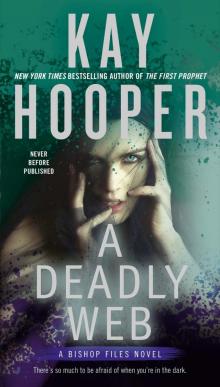 A Deadly Web
A Deadly Web Raven on the Wing
Raven on the Wing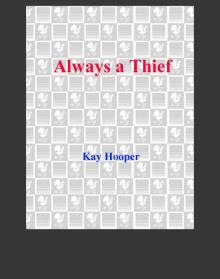 Always a Thief
Always a Thief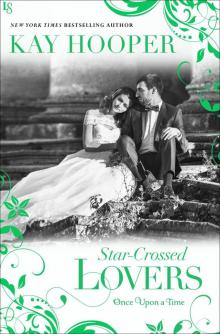 Star-Crossed Lovers
Star-Crossed Lovers Blood Dreams
Blood Dreams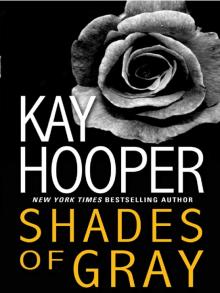 Shades of Gray
Shades of Gray Rebel Waltz
Rebel Waltz Chill of Fear
Chill of Fear Sleeping With Fear
Sleeping With Fear After Caroline
After Caroline Time After Time
Time After Time Haunting Rachel
Haunting Rachel Hunting Fear
Hunting Fear Out of the Shadows
Out of the Shadows Whisper of Evil
Whisper of Evil Blood Sins
Blood Sins Hiding in the Shadows
Hiding in the Shadows C.J.'s Fate C.J.'s Fate C.J.'s Fate
C.J.'s Fate C.J.'s Fate C.J.'s Fate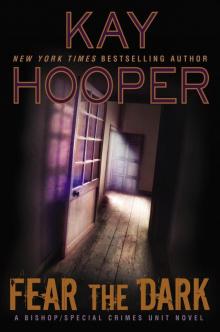 Fear the Dark
Fear the Dark Illegal Possession
Illegal Possession Stealing Shadows
Stealing Shadows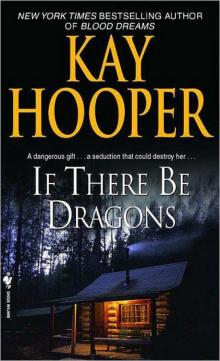 If There Be Dragons
If There Be Dragons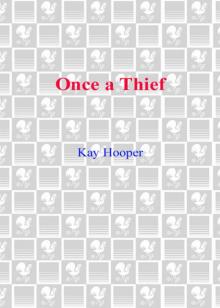 Once a Thief
Once a Thief In Serena's Web
In Serena's Web On Wings of Magic on Wings of Magic
On Wings of Magic on Wings of Magic Hostage
Hostage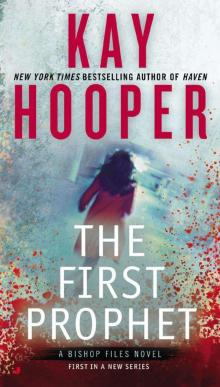 The First Prophet
The First Prophet Through the Looking Glass
Through the Looking Glass Golden Flames
Golden Flames Finding Laura
Finding Laura Haven
Haven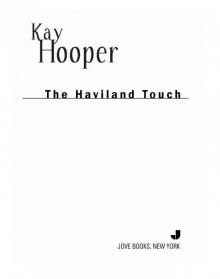 The Haviland Touch
The Haviland Touch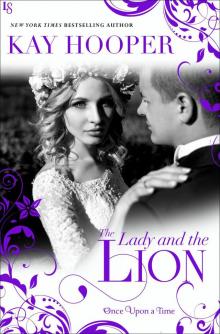 The Lady and the Lion
The Lady and the Lion Haunted
Haunted Velvet Ligntning
Velvet Ligntning Blood Ties
Blood Ties Adelaide, the Enchantress
Adelaide, the Enchantress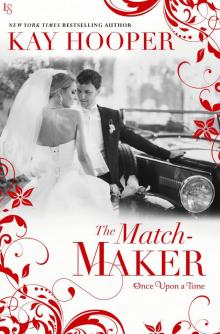 The Matchmaker
The Matchmaker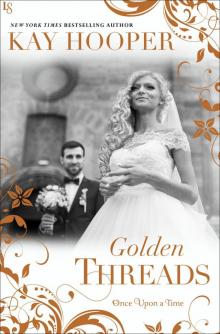 Golden Threads
Golden Threads The Haunting of Josie
The Haunting of Josie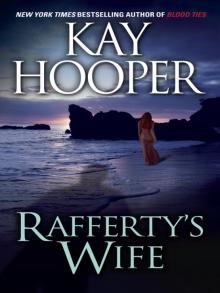 Rafferty's Wife
Rafferty's Wife Amanda
Amanda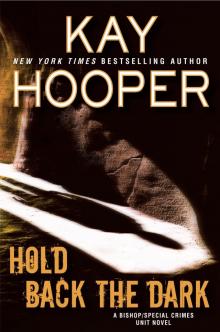 Hold Back the Dark
Hold Back the Dark Sense of Evil
Sense of Evil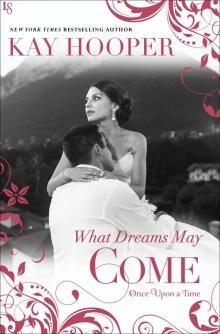 What Dreams May Come
What Dreams May Come Larger Than Life
Larger Than Life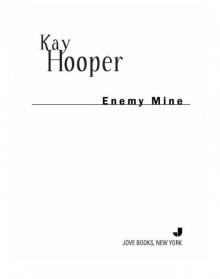 Enemy Mine
Enemy Mine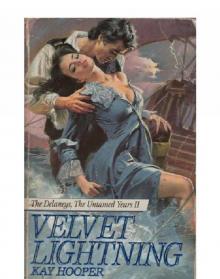 Velvet Lightning
Velvet Lightning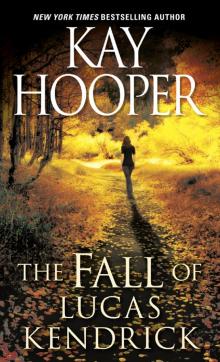 The Fall of Lucas Kendrick
The Fall of Lucas Kendrick Aces High
Aces High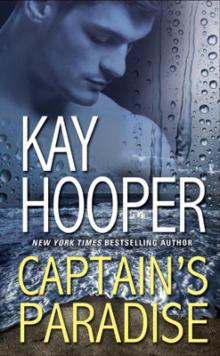 Captain's Paradise: A Novel
Captain's Paradise: A Novel The Wizard of Seattle
The Wizard of Seattle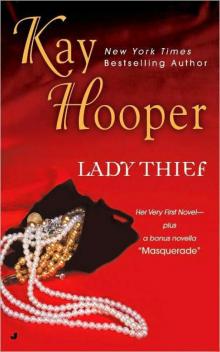 Lady Thief
Lady Thief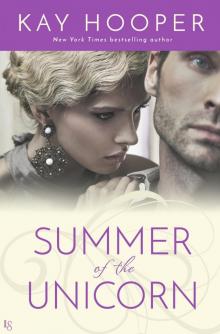 Summer of the Unicorn
Summer of the Unicorn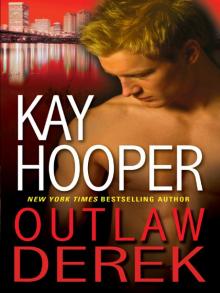 Outlaw Derek
Outlaw Derek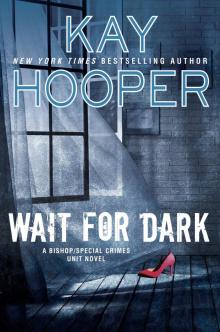 Wait for Dark
Wait for Dark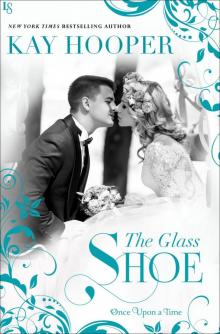 The Glass Shoe
The Glass Shoe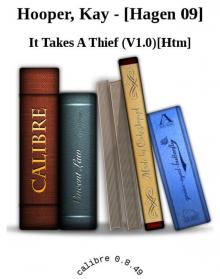 It Takes a Thief
It Takes a Thief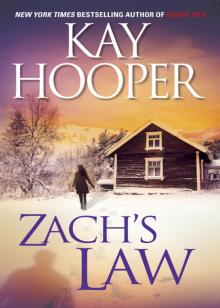 Zach's Law
Zach's Law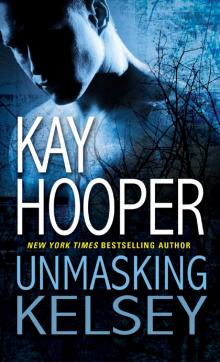 Unmasking Kelsey
Unmasking Kelsey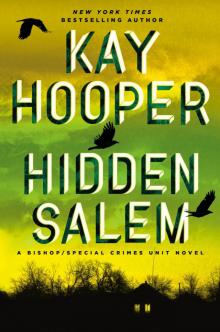 Hidden Salem
Hidden Salem